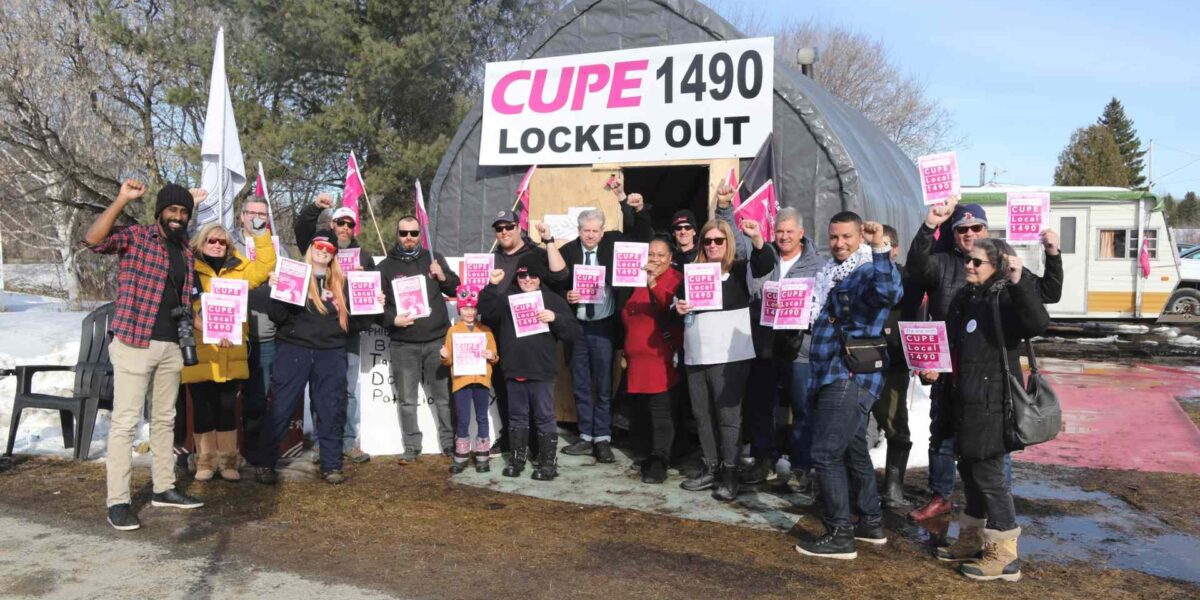In the aftermath of alleged violence against striking municipal employees of Black River-Matheson, ON, the Canadian Union of Public Employees (CUPE) has filed for a judicial review with the Superior Court of Justice of the Township of Black River-Matheson. CUPE is asking the court to investigate “the municipality’s heavy-handed escalation in its treatment of striking municipal workers,” read a statement from the union.
The incident up for review took place February 14, when two protesting employees were allegedly struck by scab workers—or replacement workers—driving trucks across the picket line. A day later, the Township issued trespass notices to the 14 employees barring them from three municipal sites. The notice also applies to other CUPE members and employees.
Municipal employees of Black River-Matheson have been in contract negotiations since 2023. After reaching an impasse, the Township locked out the fourteen employees in October, to which the employees responded by voting in favour of a strike mandate in January 2024. In reality though, the strike began October 15, 2023, after the lockout occurred.
CUPE Local 1490 continues to engage with its community while the strike is ongoing, even hosting a community engagement event on March 12 that Charlie Angus, the NDP member of Canadian Parliament for Timmins-James Bay, and two senior representatives from the Ontario Federation of Labour (OFL) attended.
CUPE’s filing with the court was also handed to the Township of Black River-Matheson on March 12. Now, it is up to the court to decide whether the township’s actions, including the trespass notice, have violated the employees’ rights protected by the Canadian Charter of Rights and Freedoms.
“These rights are protected for a reason,” said Mark Hancock, President of CUPE in a press release. “We’ll defend the right to strike and demonstrate everywhere, from picket lines to the courts, if we have to.”
Continuing the push for anti-scab legislation
Decades of difficult labour disputes, negotiations for fair wages, and the ultimately decreasing purchasing power of workers coupled with violence on the picket line has left workers more vulnerable than ever.
Years of effort from Canada’s labour movement and the federal NDP successfully pushed the Liberal government to table anti-scab legislation. Officially called an Act to amend the Canada Labour Code and the Industrial Relations Board regulations, Bill C-58 would expand the prohibitions on the employment of replacement workers and protect “fair and transparent bargaining.”
Currently, only two provinces in Canada have anti-scab legislation: Quebec and British Columbia introduced the legislation 45 years and 30 years ago respectively. In each case, the passing of anti-scab legislation was the result of the hard work of striking public employees, labour unions, and progressive politicians.
The most recent alleged violence on the picket line in Black River-Matheson is evidence for many in federal politics and the labour movement that federal anti-scab legislation is needed.



